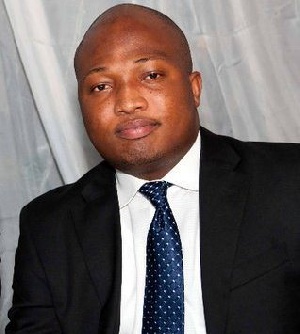Just as ex-president Jerry John Rawlings recommended some military training to the current President, the Deputy Minister in-charge of Tertiary Education, Samuel Okudzeto Ablakwa, has also called for the implementation of the six months compulsory military training for service personnel as entrenched in Act 426 of the 1980 Constitution.
The Deputy Minister who vividly believed that compulsory military training would bring about discipline which is rapidly disappearing from our society. The Deputy Minister emphasised on military training, which was aggravated by the late start of a programme that was supposed to begin one and half hour earlier, but was delayed due to the usual excuse of it rained and there was heavy traffic.
He made the call at the 2014 stakeholders’ conference and exhibition by the National Service Secretariat (NSS), held in Accra under the theme “Building Entrepreneurial and Employable Youth for National Development – The Role of the Ghana National Service Scheme and Stakeholders.” He noted that military training for service personnel was also necessary, because the scheme serves as a bridge between education and industry.
He said a committee had been setup to review the Act 426, since it mandates the nation to carry out two years compulsory service for personnel, and not the one year service, as is being practiced presently. To enhance creativity and ideological concepts, Mr. Ablakwa suggested that the NSS should also give room to persons who will perform their mandatory service in a concept they themselves have developed.
“There is a need for flexibility in the scheme to allow service personnel to perform their service in their own entrepreneurial ideas that will supervised by the scheme,” he suggested. The Deputy Minister also commented on the low intake of service personnel by the private sector, which stands at 5-10 percent.
Since it is almost the start of 2014/15 service year, and polytechnic teachers are on strike, he said “polytechnic final year students will be allowed to participate in the National Service. This act is not at variance with the national constitution. The polytechnic final year students will be posted to areas near their schools, so that they can easily go back and sit their exams when the time comes.” He further revealed that the government had increased the allowance for service personnel by 40 per cent.
The Executive Director of the NSS, Alhaji Alhassan Moro, also said the NSS, from 1973 to date, had deployed personnel, of which 60 percent are sent to the education sector. He indicated that national service had served as a skill and ability hunting ground for employers and many establishments in the country.
General News of Thursday, 14 August 2014
Source: The Chronicle

















